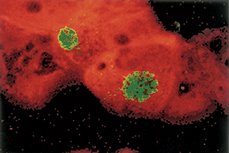a
cool new article from the history of science looking at the contributions of three early-20th century thinkers on the science of the beginning of life. below are quick notes:
the famous Urey-Miller experiments (you know, the ones from 1953 showing that amino acids could form from a simulated early-earth environment containing the elements and a high-energy source) can be traced to the physicalist contributions of three key scientists:
1.
Alexander Oparin - life is a "self-regulating dynamic equilibrium of a system of catalytic reactions". his 1924 pamphlet
The Origin of Life revealed his strong physicalist leaning against the weakly-developed alternatives of panspermia (a system in which life pops up all over) and neo-vitalism (which simply rejected any system aiming to explaing biology solely interms of physics and chemistry).
2.
JBS Haldane - similar work to Oparin, but applied specifically to the viral system, such as bacteriophage. he emphasized life's reproductive capacity.
3.
Leonard Troland - also desired to explain all biology in terms of the "organic catalyst" (enzyme), and emphasized the essential reproductive nature of all life.
these three were physicalists within the domain of biology. of course, we can draw parallels to similar arguments raging today regarding more abstract fields (psychology, sociology, etc), whose dependence (or supervenience) on "lower-level" natural sciences may not be as clear-cut. but, i think we should take care not to extrapolate too far from what science has already demonstrated. in other words, just because we can show that a lot of biology can be explained in terms of the principles of chemistry and physics, it doesn't mean
prima facie that more abstract or messy sciences (and especially non-sciences) can be expalined in terms of the principles of natural sciences. to claim that science explains everything when it hasn't is just bad science.
(read on)

 from the original experiments prompting continued debates about whether the virus is truly "alive",
from the original experiments prompting continued debates about whether the virus is truly "alive",